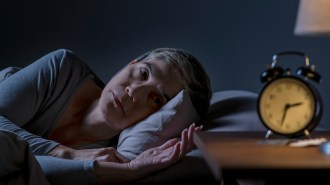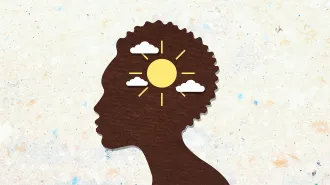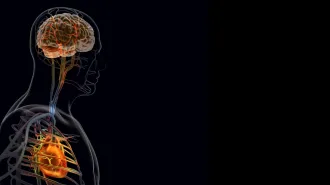Stress and sleepless nights
- More than 2 years ago
From Toronto, at the 82nd annual meeting of the Endocrine Society
Insomnia is associated with increases in stress hormones. This boost persists all day and night, a research team reports.
The scientists, including George P. Chrousos of the National Institutes of Health in Bethesda, Md., convinced 11 insomniacs and 13 young men and women without sleep problems to spend 4 consecutive nights in a sleep laboratory.
During the fourth day and night, the researchers measured cortisol and adrenocorticotropin in each person’s blood every half hour. The two hormones have been linked to stress and alertness.
Insomniacs had consistently higher concentrations of the hormones than the other volunteers during both the day and the night.
Other studies have shown that normal sleepers deprived of sleep don’t develop higher cortisol concentrations, says Chrousos. “The usual approach to insomnia is to give a sleeping pill, which just works at night,” he says. Better, he says, would be a round-the-clock treatment.







